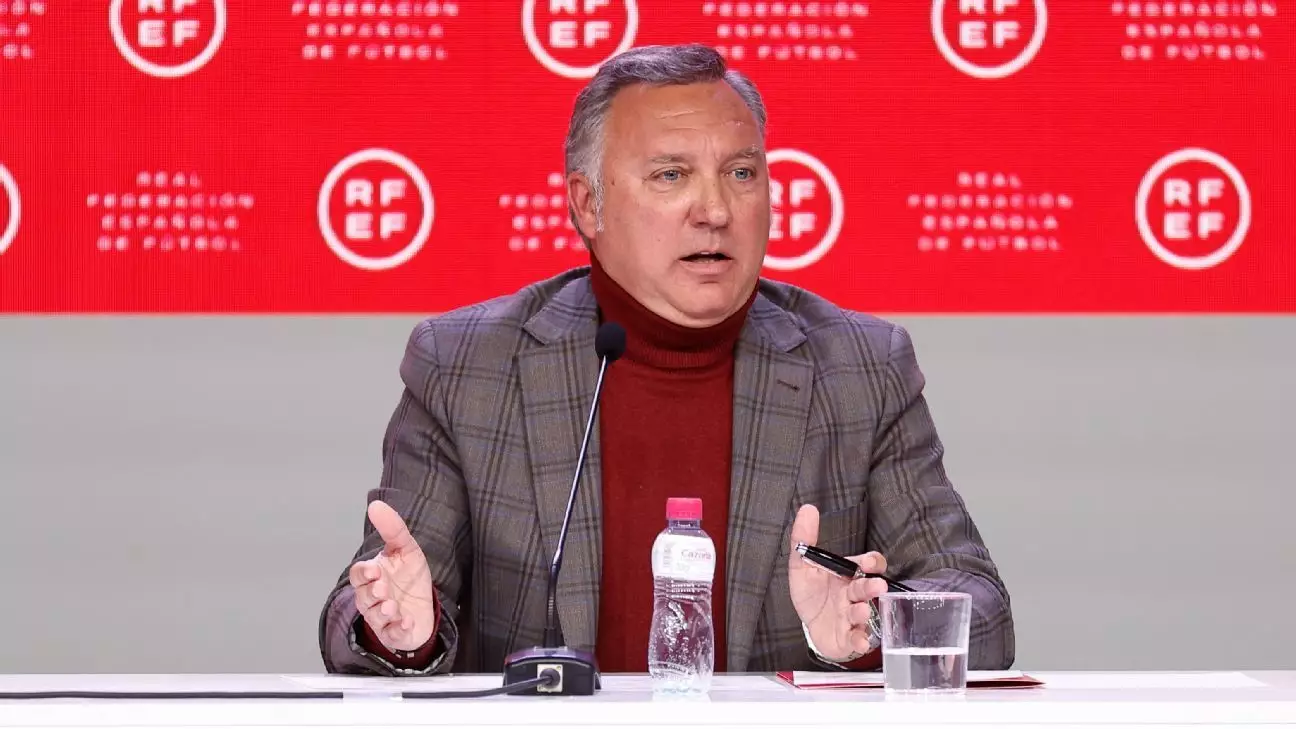The realms of football are often characterized by intense emotions, fierce rivalries, and undercurrents of controversy. Recently, a significant flashpoint has emerged in Spain, centered around Real Madrid’s accusations against the refereeing body of impropriety and poor officiating. The situation has ignited a passionate debate about the integrity of referees, the transparency of the sport, and the political maneuvering involved in high-stakes football matches.
Real Madrid’s board of directors expressed outrage following their team’s narrow 1-0 defeat against Espanyol. Central to this contention were several critical decisions made by match referee Alejandro Muñiz Ruiz which, according to Madrid, deflected the course of the match and arguably the league title. Among the most controversial decisions involved a significant foul committed by Espanyol’s Carlos Romero on Kylian Mbappé that went unpunished, alongside an alleged erroneous disallowed goal by Vinícius Júnior.
Madrid’s reaction was a strongly worded public letter sent to both the Royal Spanish Football Federation (RFEF) and the Spanish Sports Ministry. The missive clamored for accountability and reform, asserting that the refereeing catastrophes encountered in the match against Espanyol exemplified a system “completely discredited.” This moment raised intriguing questions—are Madrid’s frustrations genuinely about a few refereeing mistakes, or do they represent a strategic maneuver to shift focus from their own performances?
Luis Medina Cantalejo, head of Spain’s Technical Committee of Referees (CTA), has publicly defended the integrity of referees, rebutting claims of corruption with a passionate repudiation of the idea that officials are untrustworthy. “I have to go to work every day… but I don’t like it,” Cantalejo stated, emphasizing that referees are not malicious but are instead tasked with maintaining fairness in an unpredictable environment. His comments serve as a stark reminder of the complexities and responsibilities faced by officials, who must navigate high-pressure situations while making split-second decisions.
The nuance of Cantalejo’s statements brings to the fore a broader issue: the relationship between clubs and officiating bodies. Madrid’s complaints charge that refereeing standards allow for “human errors” that can unduly influence outcomes, yet Cantalejo’s comments hint at a deeper systemic frustration. The balancing act between preventing errors and ensuring the smooth flow of matches is a challenge highlighted by recent controversies, including the ongoing inquiries into past financial irregularities involving top clubs like Barcelona.
Real Madrid and its persistent complaints about officiating can be traced back over a century, as referenced by former Barcelona star Gerard Piqué in recent comments. According to Piqué, the complaint mechanism serves as a “smokescreen,” diverting attention from Madrid’s own inadequacies during underwhelming performances. This historical context gives rise to the question of whether complaints are truly genuine attempts at reform; do they reflect a desire to improve the sport, or merely a tactical approach to influence narrative in a sport rich with rivalry?
Meanwhile, as Madrid’s president Florentino Pérez pushes for the introduction of English referees, the very foundation of Spanish officiating is brought into the spotlight. This move risks stirring further tensions within La Liga, as it implies a lack of faith in the current system while simultaneously inviting scrutiny from other clubs who may resist this suggestion. In an environment already rife with rivalry, such ideological disagreements could lead to deeper fissures among teams.
The tumultuous exchanges signify a crucial juncture for Spanish football, one that could shape its refereeing standards and broader reputation. Calls for structural reform from Madrid necessitate serious reflection from governing bodies. In addition to improving officiating standards, fostering an environment of trust between clubs and referees appears essential. A more open dialogue could mitigate misunderstandings and reduce tensions, helping all stakeholders to focus on the beautiful game rather than the controversies that often overshadow it.
As the season progresses, it remains to be seen whether the current rifts will influence regulatory changes in La Liga or merely serve to escalate the underlying tensions. One thing is certain: as long as football remains a high-stakes spectacle, the intersection of performance, officiating, and passion will continue to be a source of endless debate and intrigue.

